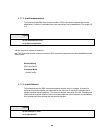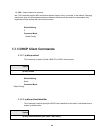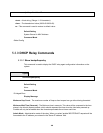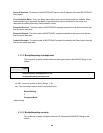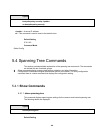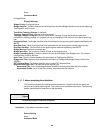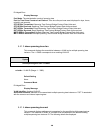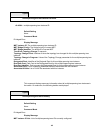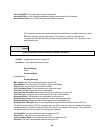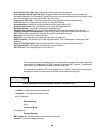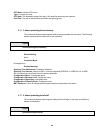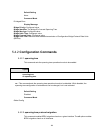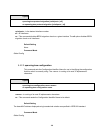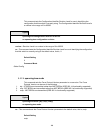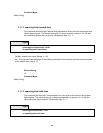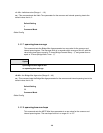
168
For each MSTID: The multiple spanning tree instance ID.
Associated FIDs: List of forwarding database identifiers associated with this instance.
Associated VLANs: List of VLAN IDs associated with this instance.
This command displays the detailed settings and parameters for a specific switch port within
a
particular multiple spanning tree instance. The instance <mstid> is a number that
corresponds to the desired existing multiple spanning tree instance. The <slot/port> is the
desired switch port.
Syntax
show spanning-tree mst port detailed <0-4094> <slot/port>
<0-4094> - multiple spanning tree instance ID.
<slot/port> - is the desired interface number.
Default Setting
None
Command Mode
Privileged Exec
Display Message
MST Instance ID: The multiple spanning tree instance ID.
Port Identifier: The unique value to identify a port on that Bridge.
Port Priority: The priority of the port within the MST.
Port Forwarding State: Current spanning tree state of this port.
Port Role: Indicate the port role is root or designate.
Auto-calculate Port Path Cost: Indicate the port auto-calculate port path cost.
Port Path Cost: Configured value of the Internal Port Path Cost parameter.
Designated Root: The Identifier of the designated root for this port.
Designated Port Cost: Path Cost offered to the LAN by the Designated Port.
Designated Bridge: Bridge Identifier of the bridge with the Designated Port.
Designated Port Identifier: Port on the Designated Bridge that offers the lowest cost to the LAN.
If 0 (defined as the default CIST ID) is passed as the <0-4094>, then this command displays the settings
and parameters for a specific switch port within the common and internal spanning tree. The <slot/port> is
the desired switch port. In this case, the following are displayed.
Port Identifier: The port identifier for this port within the CST.
Port Priority: The priority of the port within the CST.
Port Forwarding State: The forwarding state of the port within the CST.
Port Role: The role of the specified interface within the CST.



